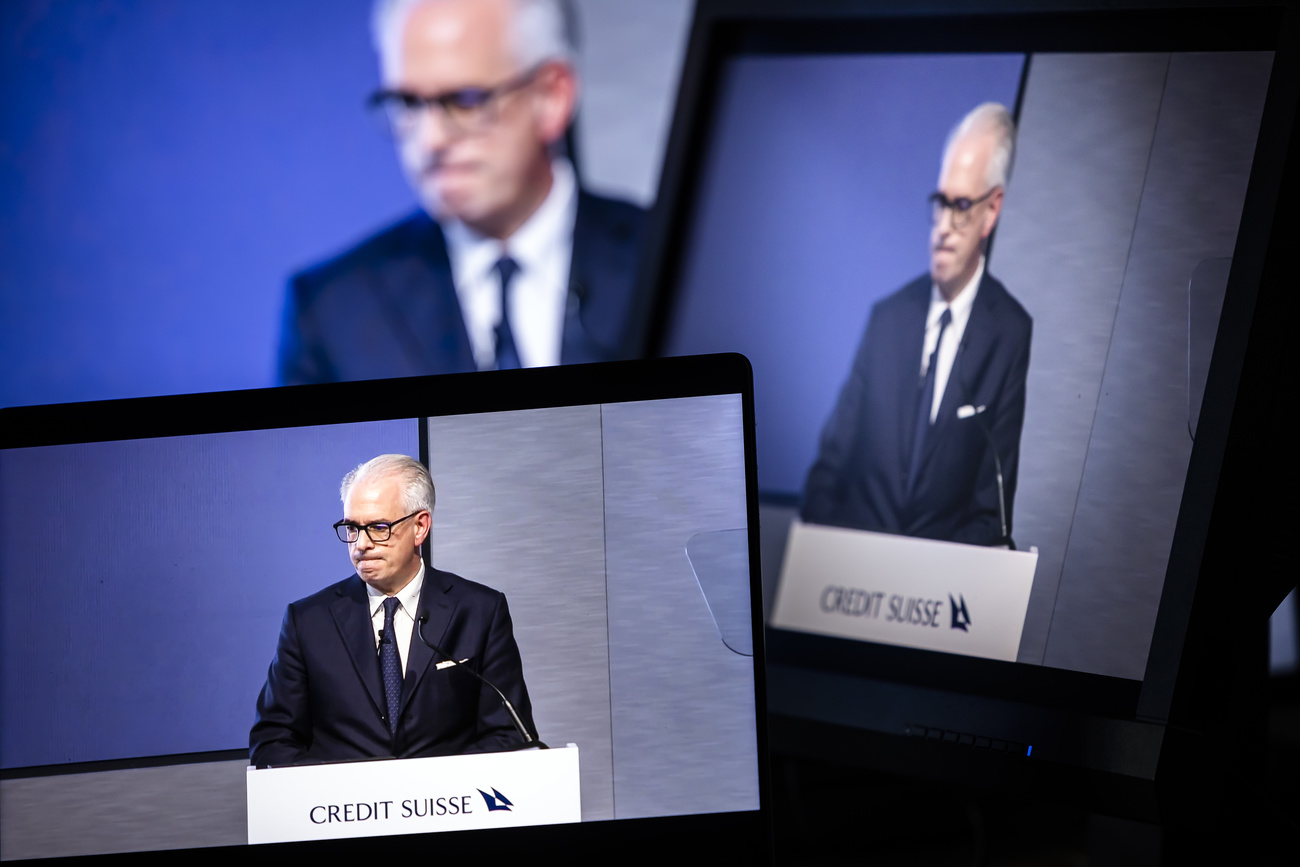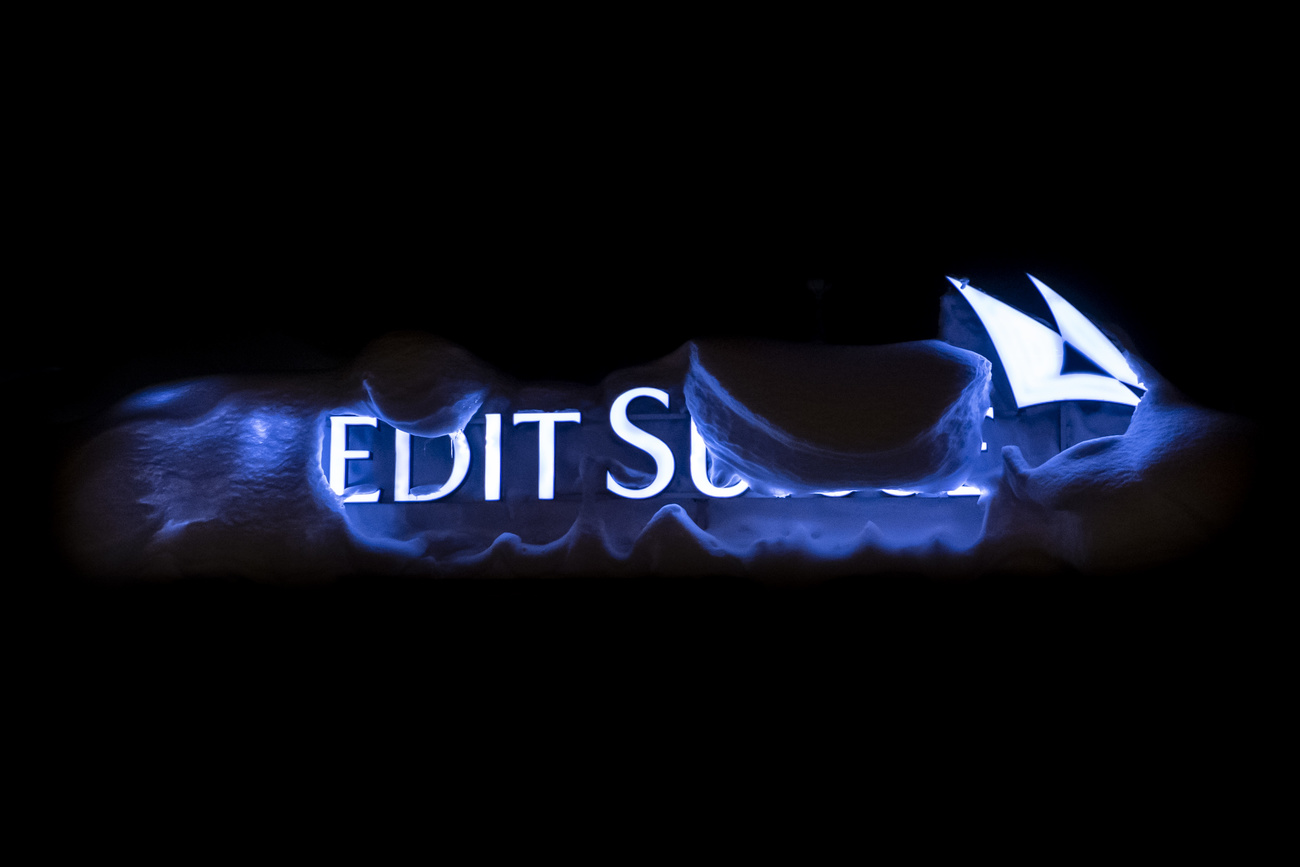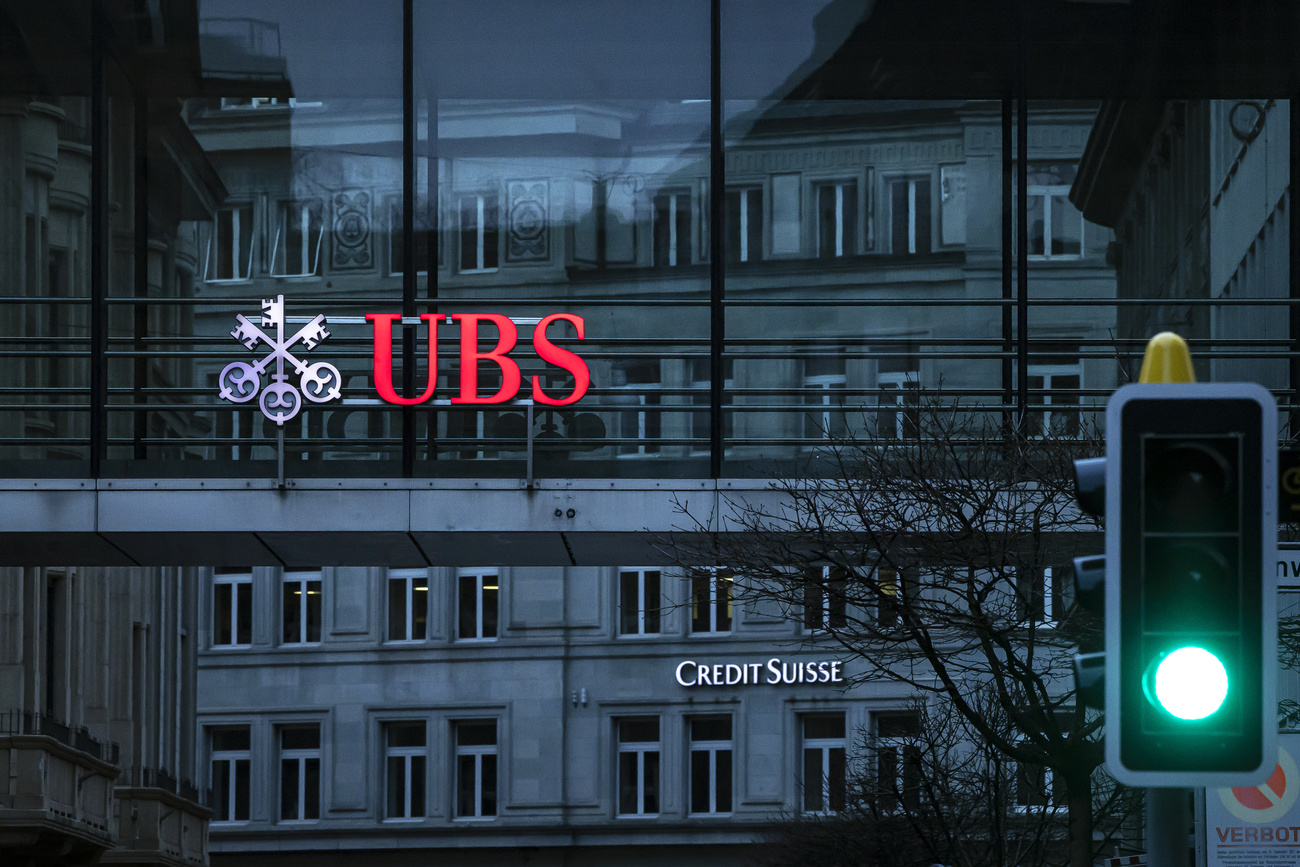Credit Suisse drama: Behind the scenes with the Financial Times

The Financial Times (FT) has been particularly prominent in the Credit Suisse affair that sealed the bank’s fate. Its editor Roula Khalaf tells Swiss public radio, RTS, how her team worked round the clock, verifying each piece of information with at least three sources.
The Financial Times seemed very well informed about what was happening in the Swiss capital, Bern, at the end of last week. The British newspaper is the only publication that was able to give a detailed behind-the-scenes account about the banking drama, reporting on unpublished information and detailed accounts of the roles of various players involved. The full-page article it published on Tuesday reads like a detective story.
>>> Read the Financial Times article on SWI swissinfo.ch:

More
How the Swiss ‘trinity’ forced UBS to save Credit Suisse
In an interview with RTSExternal link on Thursday, Khalaf lifted the veil on its extraordinary display of journalism.
“First of all, it must be said that we are the Financial Times. Finance is really our expertise, our strong point,” she said. “We have always covered global banks, and in particular, we cover European banks extensively. […] And in recent years, we have covered Credit Suisse very closely.”
‘Sources everywhere’
In this particular case, Khalaf noted their specialised team working on the story. “We had our two correspondents who know UBS and Credit Suisse very well, and at the same time our two M&A [merger and acquisition] specialists and a journalist specialising in monitoring and regulatory affairs.”
This group of journalists worked day and night on the story. “They had sources everywhere and on both sides. That’s why we were able to write these stories,” she said. “For each piece of information we had at least three sources.”
This led to the rather extraordinary publication in Tuesday’s edition, which had readers feeling like they were in the negotiation room along with the primary actors involved.

More
Where did it all go wrong for Credit Suisse?
Khalaf does not hide her pride in this work or the journalists. “It must also be said that we did a very good job, not only with the Credit Suisse story but also with news about the happenings with the Silicon Valley Bank,” she said. “We were the first publication to identify the bank’s problems on February 22. So, I am especially proud.”
The FT is heavily involved in its area of expertise, and with good reason. “Usually, we know if our efforts have been worthwhile when there is a major crisis,” she said. “This story has gone well, and I expect that we will continue to receive plenty of scoops […] We will continue to cover the Swiss banks day after day.”
Lack of trust
Khalaf believed it was difficult to say whether this crisis would have a wider and lasting impact. “The reasons why the three banks [Silicon Valley Bank, First Republic Bank and Credit Suisse] experienced such serious problems were not all exactly the same,” she said.

More
Parliamentary probes to demand Credit Suisse clarity
However, she saw at least one common thread in all three cases: lack of trust. “Sometimes a problem can pass quite quickly, and you can see that the markets are much more stable. But this is not necessarily the end of the story,” she said. “With interest rates rising, there may be quite a few other vulnerabilities […] and we have to stay vigilant.”
On the possible consequences for Switzerland’s image and the reputation of its banking and financial centre, Khalaf is also cautious.
“There was a bailout. The authorities acted very swiftly,” she says. “The action taken is not perfect, so there are some who are not satisfied. […] But if they hadn’t acted, the markets would have become much more turbulent.”

In compliance with the JTI standards
More: SWI swissinfo.ch certified by the Journalism Trust Initiative
















You can find an overview of ongoing debates with our journalists here . Please join us!
If you want to start a conversation about a topic raised in this article or want to report factual errors, email us at english@swissinfo.ch.